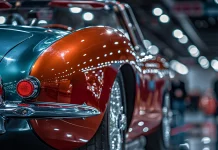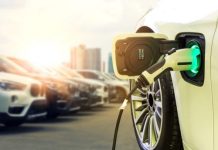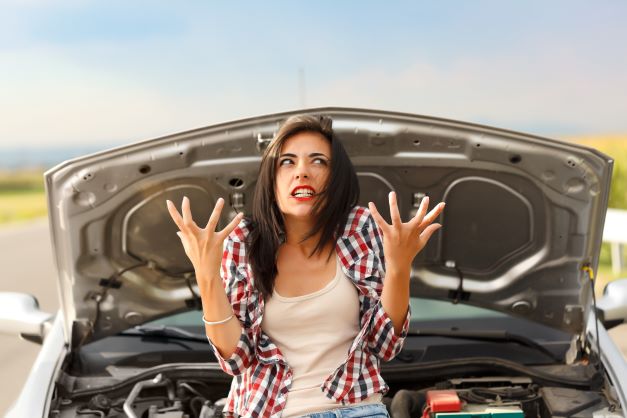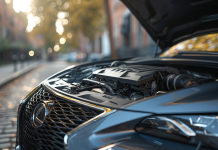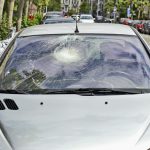Car is a mode of transportation for a large number of people around the globe. No matter how popular it may be, not many of us understand how the engine works and the inner workings of a car. Packed with an engine, a set of wheels, and a steering wheel, a car can get you from A to B with great ease. But wait, did you ever get stuck in a traffic jam for hours, or did your car refuse to start one morning? The reason behind this could be numerous.
Here is a list of reasons why your car is not starting.
Reason#1: Your Battery Is Dead
If your car turns over but won’t start, the problem is probably with your battery. If your car was running when you parked it, there are two possibilities: the battery is dead, or the alternator failed while the engine was running.
That can happen if you leave a light on in the car, for example. If you drive with an alternator problem for too long, usually about twenty miles or so, you can damage the starter because there isn’t enough alternator output to keep it cool. That can cause permanent starter failure.
Do this test to find out if the battery is the problem:
- Grab a 12-volt test light or jumper cable. You can use 12-volt test lights that are sold at auto parts stores. These are cheap and easy to use.
- Disconnect the negative terminal of the battery first.
Then, touch your positive lead to the battery’s positive terminal and touch your negative lead to the battery’s negative terminal in quick succession. If you have power in the system, the test light should light up in both instances. If it doesn’t, check that your connections are good (the connection to the negative terminal of your battery may be corroded), then get a new battery and replace it.
Reason #2: A Faulty Fuel Pump
You may have a faulty fuel pump if your car is flooding. This means you have an excessive amount of fuel in the carburettor, which can sometimes cause your car to misfire or even stall. To fix this problem, install a new fuel pump.
Your fuel pump could also be at fault if your vehicle won’t start after being flooded with too much fuel. To prevent flooding, always disconnect the negative terminal of the battery before working on your fuel system.
Reason #3: Faulty Fuse
The most common reason for starter failure is a faulty fuse. The electrical circuit includes several fuses; if one blows, you should check the others. If more than one fuse has blown, take your car to professional car mechanics and ask them to find out which fuse is defective and why it has blown.
Reason #4: Computerized engine management problems
Today, most of the cars on the road have computerized engine management systems. They monitor a lot of data inside the engine. If the computer senses a problem, it will not allow anything to happen with the engine, including starting it or turning it off, without first getting your approval.
The computerized engine management systems are very complicated and very sensitive. Many different sensors monitor all functions inside the engine, from the airflow to engine temperature to idle speed / RPMs and more. The computer uses this data to make sure that everything is running as it should, that there are no abnormal functions taking place at high speeds or low speeds, that there is not too much idle time, and so on.
Reason #5: Inoperative Carburetor
The carburettor is a part of the engine that converts the fuel into a vapour that can then be burnt in order to provide a propelling force to the piston. The vapour is generated by the petrol, which is vaporized when it passes through the carburettor. When your car is not starting, it can be due to a defective carburettor.
In such a case, the engine will fail to start when you try to accelerate the vehicle. To fix this problem, you need to check whether or not the carburettor is working properly. Common issues with the carburettor include a lack of pressure when filling in gas, a stuck float in the carburettor drain valve, and a leaking in the inlet valve.
The inlet valve could be faulty in design or clogged by dirt accumulation in its ports. The car may also develop problems with starting if there is a blockage of petrol vapours inside the carburettor due to an inefficient vent system or an air filter that is overwhelmed by too much dirt accumulation. A damaged float needle might also cause problems with starting your car if it is stuck inside the carburettor’s float chamber.
Reason #6: Poor Connections in the Electrical System
The electrical system in your car has multiple wires and circuits that must be connected to get the engine to fire. Although quite complex, the entire system has fewer than 50 components. As long as all of the components are in place and properly connected, the engine should turn over when you try to start it. If your battery is fully charged, you have spark at the plugs, and you have fuel at the injectors, any problem with getting those three things to connect properly can leave your car high and dry.
Reason #7: Ignition Switch Problems
The ignition switch is one of the most important parts of your vehicle, and it works in conjunction with your key to provide power to different components in your car. However, when this part malfunctions, your ignition system will stop working altogether.
There are several reasons why you deal with ignition switch problems. You can check for loose connections in the wiring if the key gets stuck in the ignition. If this does not solve the problem, check your car’s electrical system for shorts or dead spots.
Overall, there are many common reasons why your car does not start. However, most of these issues are simple and easy to fix once you get professional assistance. At Dff Parts Direct, we understand how important your car is to you and how much time and effort you’ve put into making it an incredible machine. That’s why we offer so much information on car parts, including sensors so that you can find the right part easily and choose the best option for your needs.


